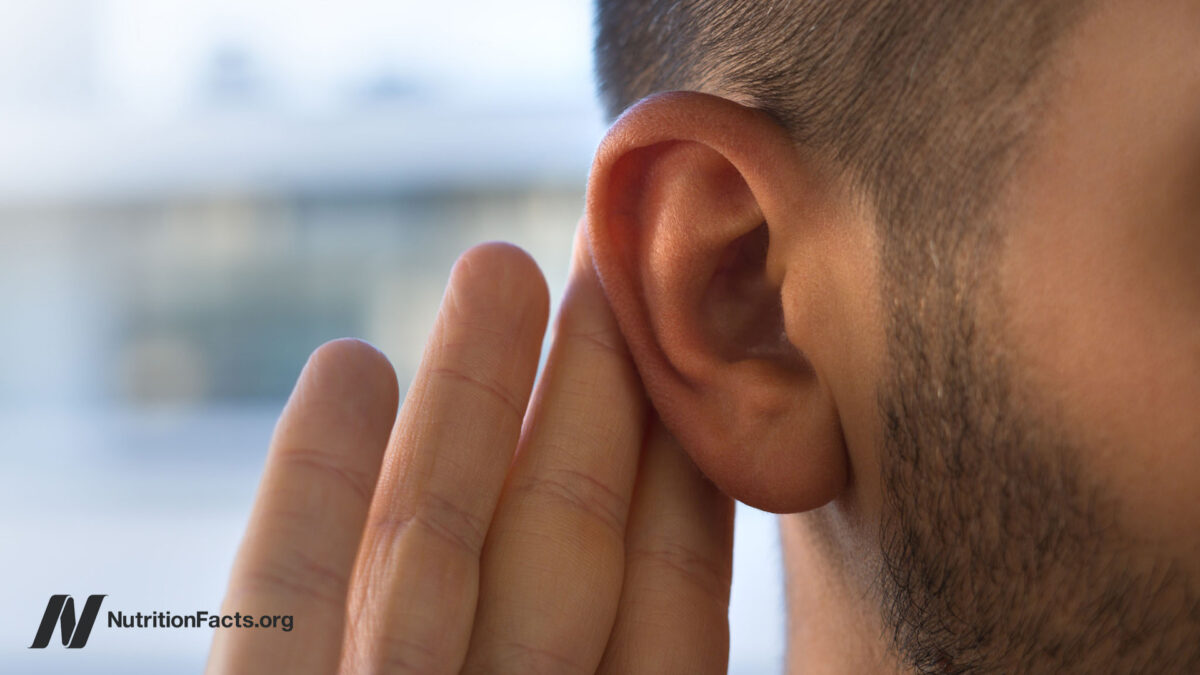
Elderly
When we think of being elderly, we may imagine years of frailty, loss of vibrancy, and an overall weakening—of our senses, strength, flexibility, enthusiasm, mind, and, ultimately life. In fact, there may be no such thing as dying from old age. From a study of more than 42,000 consecutive autopsies, centenarians were found to have succumbed to diseases 100 percent of the time. Though most were perceived to have been healthy just before death, they died from disease. Not one “died of old age.”
When researchers followed more than 100,000 men and women for 34 years, they found that just a few basic lifestyle behaviors appeared to translate into about 13 years of extra lifespan for the average 50-year-old. Even from age 70, there are still about ten extra years on the table. Extending that back, earlier than age 50, a Canadian study found that nearly 18 years were up for grabs based on simple, commonsense health behaviors.
A midlife switch between the ages of 45 and 64 to even just the barest of minimums—at least five daily servings fruits and vegetables, walking about 20 minutes a day, maintaining a healthy weight, and not smoking—resulted in a substantial reduction in mortality even in the immediate future. We’re talking a 40 percent lower risk of dying in the subsequent four years.
There is so much we can do to extend our lifespan and our healthspan. Becoming elderly doesn’t have to mean losing vibrancy or growing weaker. Meta-analyses suggesting that you could add years to your life just by avoiding eggs or bacon, or by eating nuts every day or certain fruit? It just seems too good to be true. Regardless of the absolute magnitude of the effect, diet is understood to be the number one determinant of how long we live. We are what we eat.
For substantiation of any statements of fact from the peer-reviewed medical literature, please see the associated videos below.
Image Credit: Stannah-Stairlifts.com. This image has been modified.
Popular Videos for Elderly

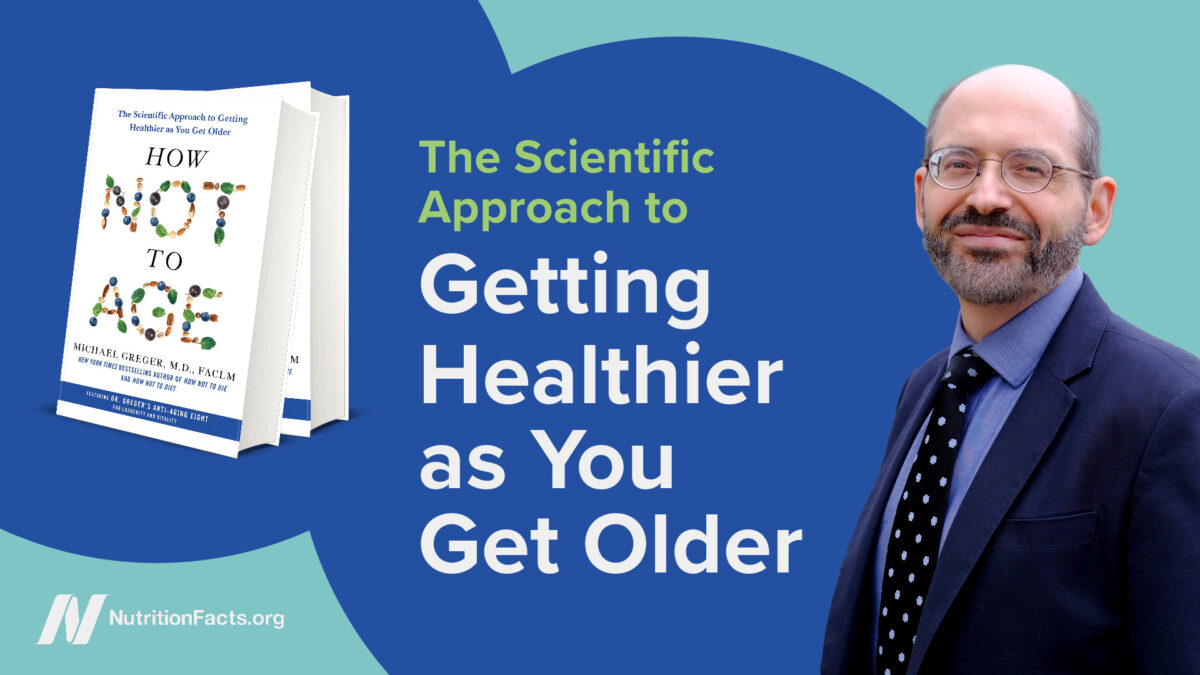
How Not To Age – Live Presentation
In this live lecture, Dr. Greger offers a sneak peek into his latest book, How...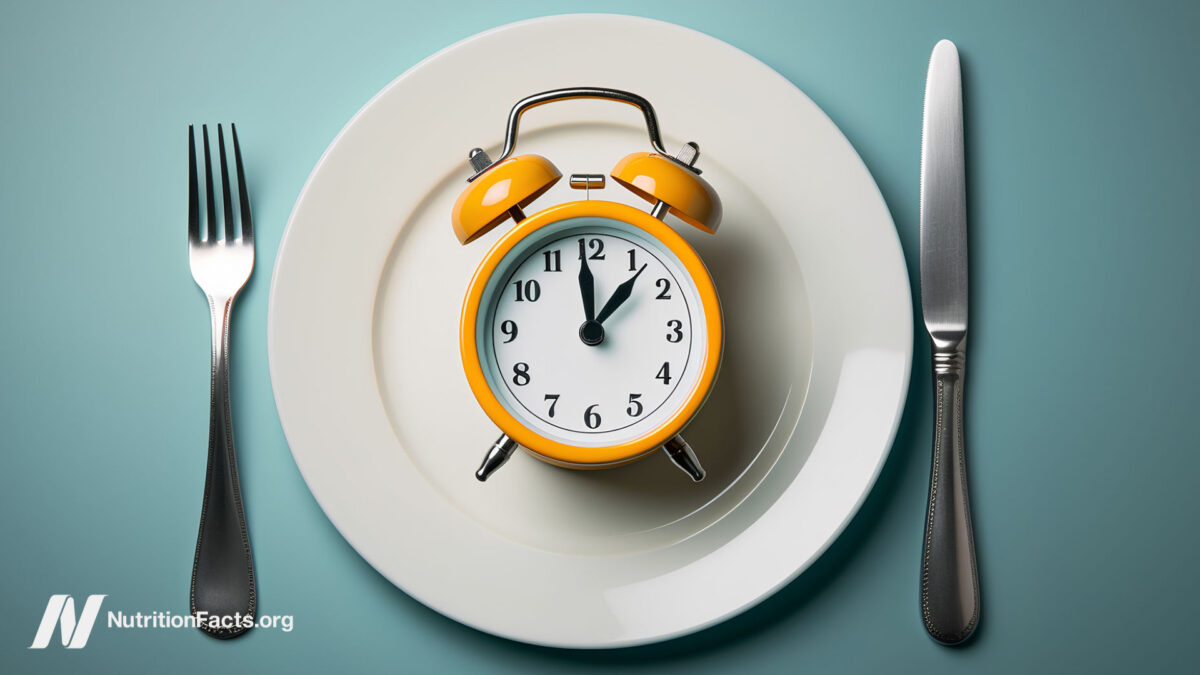
Diet and Caloric Restriction for Longevity—The Monkey Trials
How can we make sense of the disparate results from the four primate studies on...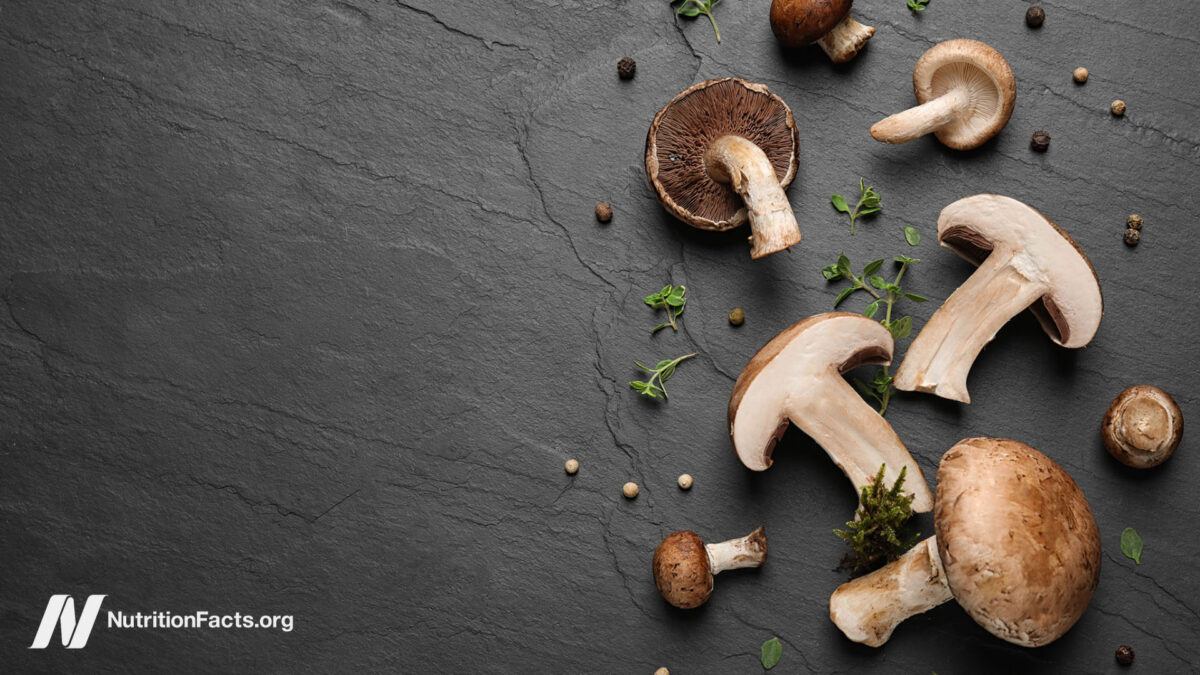
Dietary Sources of the “Longevity Vitamin” Ergothioneine
It may be even more important to include mushrooms (or tempeh) in our diet as...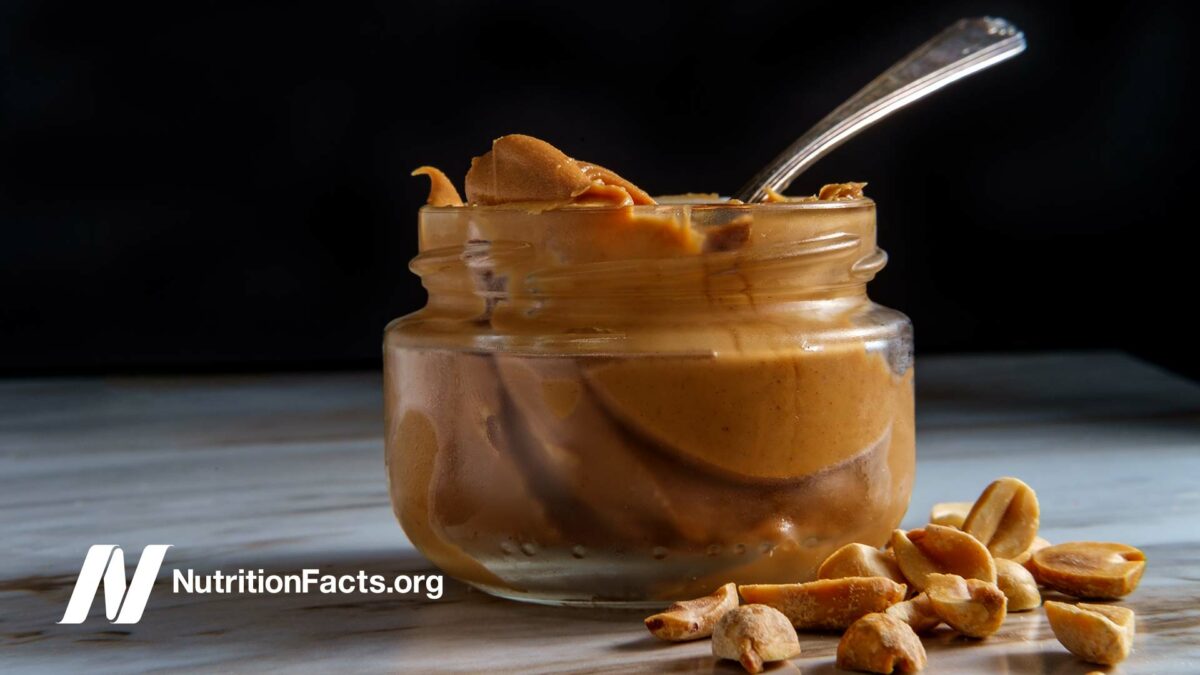
Do the Health Benefits of Peanut Butter Include Longevity?
Why are nuts associated with decreased mortality, but not peanut butter?
Finger on the Pulse of Longevity
To maximize our lifespan, the target resting heart rate may be one beat a second...
Fruits, Veggies, and Longevity: How Many Minutes Per Mouthful?
The first study to gauge how much longer we live based on the number of...
Is Longevity Genetic?
Based on a study of thousands of twin pairs, only about 25 percent of the...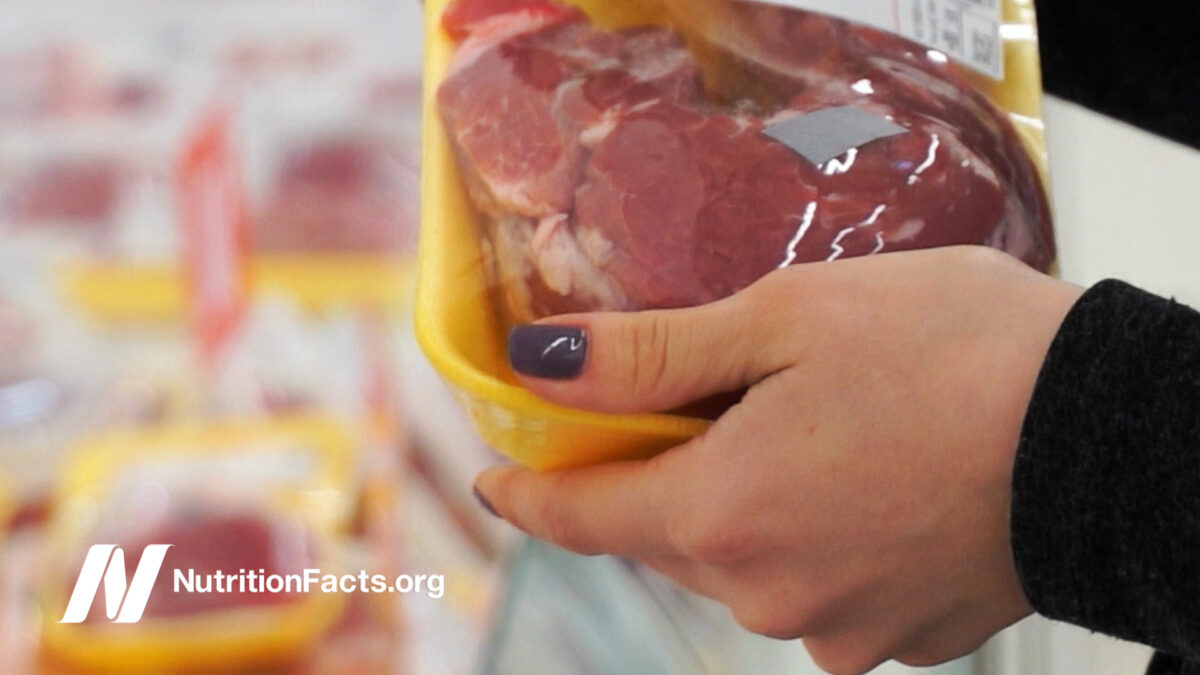
How Much Does Meat Affect Longevity?
If you care about your health so much that it would be unthinkable to light...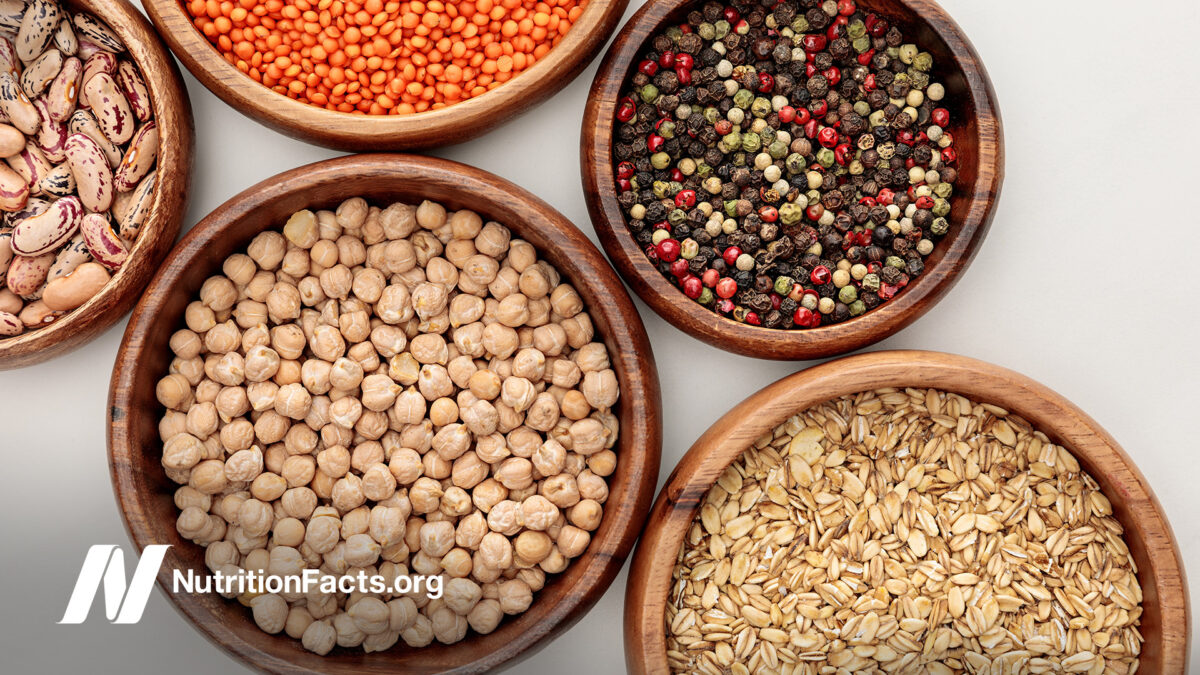
How to Boost FGF21 with Diet for Longevity
Fasting and exercise can boost the longevity hormone FGF21, but what can we eat—or avoid...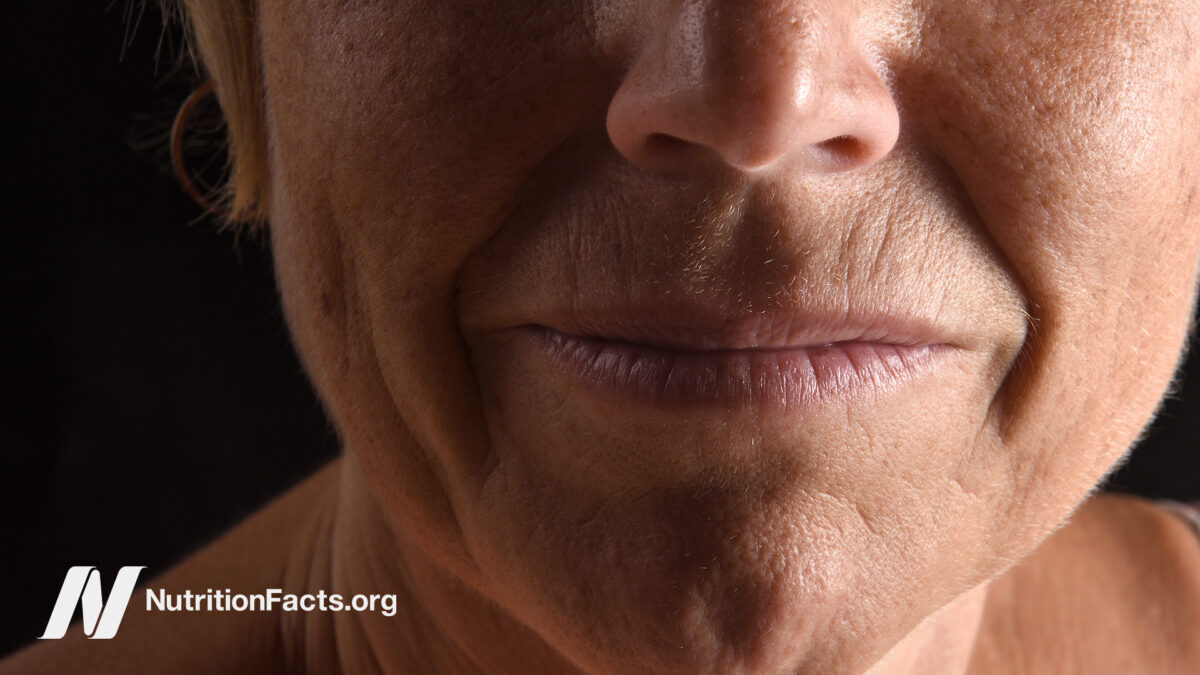
What Causes Wrinkles?
Over time, the skin folding caused by everyday facial expressions etches once-temporary grooves into permanent...
Preventing Wrinkles with Diet
What dietary intervention may significantly protect against wrinkles in the crow's foot area around the...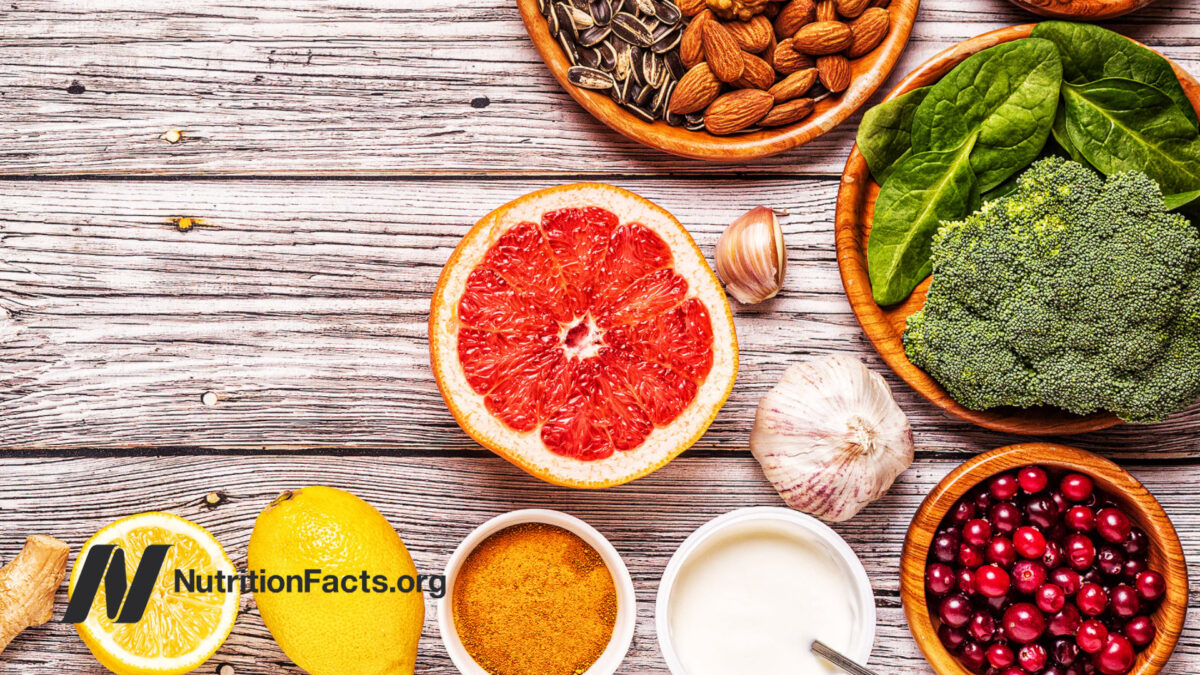
How to Naturally Reduce Wrinkles with Food
Almonds are put to the test in a randomized controlled trial for facial wrinkles.
Can Getting Transfusions of Young Blood Slow Aging?
Ready for the mind-blowing twist in the mystery of why the injection of blood from...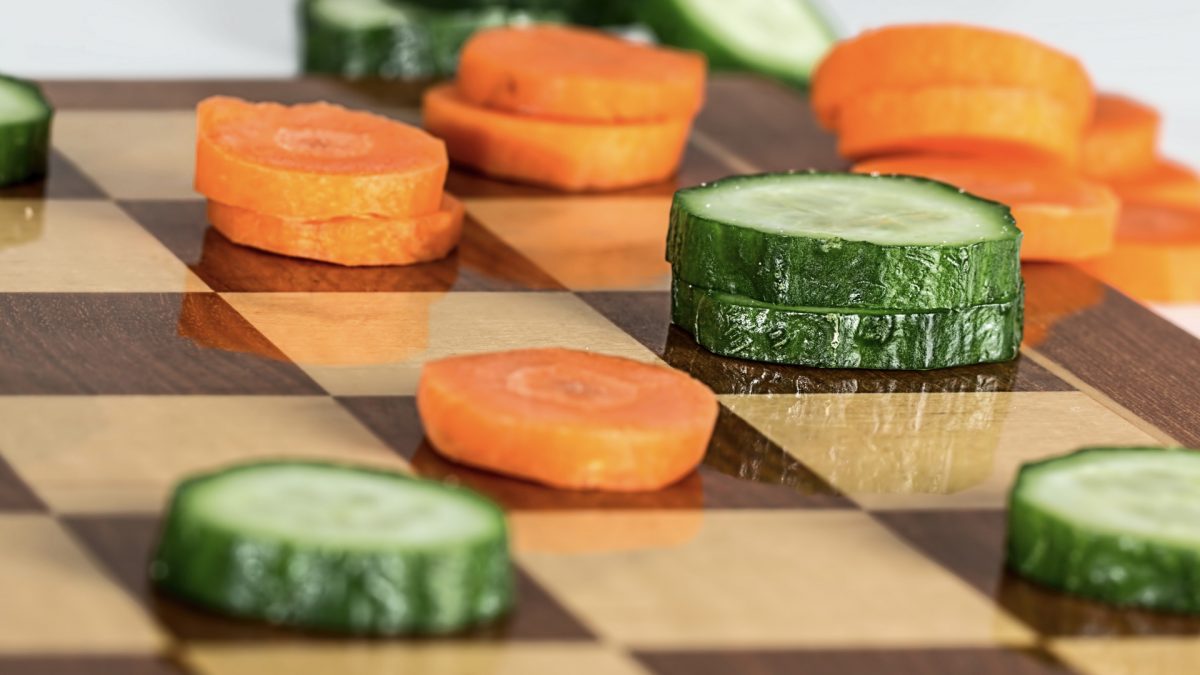
Brain-Healthy Foods to Fight Aging
What is the best source of lutein, the primary carotenoid antioxidant in the brain?
Flashback Friday: How to Counter the Inflammation of Aging
What can we eat to combat “inflamm-aging,” the chronic low-grade inflammation that accompanies the aging...All Videos for Elderly
-

Does Increasing Protein Intake Slow Age-Related Muscle Mass Loss?
Adding extra protein to the diets of older men and women is put to the test.
-

Benefits and Side Effects of the Pneumonia Vaccine
Randomized controlled trials have found that pneumonia vaccines significantly reduce the risk of pneumococcal pneumonia in people 65 and older.
-

Benefits and Side Effects of the Flu Vaccine
Randomized placebo-controlled trials show that flu shots can be extraordinary lifesavers.
-

Higher Blood Pressure May Lead to Brain Shrinkage
Having hypertension in midlife (ages 40 through 60) is associated with elevated risk of cognitive impairment and Alzheimer’s dementia later in life—even more so than having the so-called Alzheimer’s gene.
-

How to Boost Your Immune System with Wakame Seaweed
Eating seaweed salad may boost the efficacy of vaccinations and help treat cold sores, herpes, Epstein-Barr virus, and shingles.
-

Benefits of Green Tea for Boosting Antiviral Immune Function
Unlike most antiviral drugs, green tea appears to work by boosting the immune system to combat diseases such as genital warts (caused by HPV) and the flu (caused by the influenza virus).
-

Should Vitamin D Supplements Be Taken to Prevent Falls in the Elderly?
A daily dose of 4,000 IU of vitamin D is recommended for elders at high risk for falling to improve muscle strength and balance, though there is something that works even better.
-

Should We All Take Aspirin to Prevent Cancer?
The aspirin compounds naturally found in plant foods may help explain the lower cancer rates among those eating plant-based diets.
-

Should We All Take Aspirin to Prevent Heart Disease?
The benefits of taking a daily aspirin must be weighed against the risk of internal bleeding.
-

Should Vegans Take DHA to Preserve Brain Function?
Learn why I recommend 250mg a day of a pollutant-free source of long-chain omega-3 fatty acids.
-

Increasing Protein Intake After Age 65
What is the optimal source and amount of protein for senior citizens?
-

Prunes for Osteoporosis
Vegetables and fruit, such as dried plums, may help build stronger bones.
-

Almonds for Osteoporosis
What happens when you take blood from people before and then again four hours after almond consumption, and drip that blood on bone cells?
-

Alzheimer’s Disease, Copper, and Saturated Fat
If copper is associated with Alzheimer’s disease, what about healthy, whole plant food sources such as nuts, seeds, beans, and whole grains?
-

Are Calcium Supplements Effective?
What is the optimal daily dietary calcium intake and might benefits for your bones outweigh the risks to your heart from taking calcium supplements?
-

Are Calcium Supplements Safe?
The unnaturally large, rapid, and sustained calcium levels in the blood caused by calcium supplements may explain why calcium from supplements, but not from food, appears to increase the risk of heart attacks.
-

Kiwifruit for the Common Cold
Compared to bananas, does eating kiwifruit decrease the incidence and severity of upper respiratory tract infections?
-

The Okinawa Diet: Living to 100
What would happen if you centered your diet around vegetables, the most nutrient-dense food group?
-

Oxygenating Blood with Nitrate-Rich Vegetables
Vegetables such as beets and arugula can improve athletic performance by improving oxygen delivery and utilization. But, what about for those who really need it—such as those with emphysema, high blood pressure, and peripheral artery disease?
-

Alzheimer’s May Start Decades Before Diagnosis
Neurodegenerative brain changes begin by middle age, underscoring the need for lifelong preventive brain maintenance.
-

Food as Medicine: Preventing and Treating the Most Dreaded Diseases with Diet
Dr. Greger has scoured the world’s scholarly literature on clinical nutrition and developed this new presentation based on the latest in cutting edge research exploring the role diet may play in preventing, arresting, and even reversing some of our most feared causes of death and disability.
-

How to Treat High Blood Pressure with Diet
The first-line treatment for hypertension is lifestyle modification, which often includes the DASH diet. What is it and how can it be improved?
-

Peanut Butter Smell Test for Alzheimer’s
A quick, non-invasive, and inexpensive test for the early detection of Alzheimer’s disease is developed using only a ruler and some peanut butter.
-

Cooked Beans or Sprouted Beans?
How do canned versus germinated beans (such as sprouted lentils) compare when it comes to protecting brain cells and destroying melanoma, kidney, and breast cancer cells.
-

From Table to Able: Combating Disabling Diseases with Food
Dr. Greger has scoured the world’s scholarly literature on clinical nutrition and developed this new presentation based on the latest in cutting-edge research exploring the role diet may play in preventing, arresting, and even reversing some of our leading causes of death and disability.
-

Preventing Asthma with Fruits and Vegetables
A study involving more than a million kids suggests the striking worldwide variation in childhood rates of allergies, asthma, and eczema is related to diet.
-

Why Do We Age?
A bacteria discovered on Easter Island may hold the key to the proverbial fountain of youth by producing rapamycin, which inhibits the engine-of-aging enzyme TOR.
-

Who Says Eggs Aren’t Healthy or Safe?
Freedom of Information Act documents reveal that the U.S. Department of Agriculture warned the egg industry that saying eggs are nutritious or safe may violate rules against false and misleading advertising.
-

Foster Farms Responds to Chicken Salmonella Outbreaks
Foster Farms chicken may have infected and sickened more than 10,000 people, due to contamination of the meat with fecal material.
-

Increased Lifespan from Beans
The intake of legumes—beans, chickpeas, split peas, and lentils—may be the single most important dietary predictor of a long lifespan. But what about concerns about intestinal gas?
-

Tart Cherries for Insomnia
The melatonin content in certain plant foods such as almonds, raspberries, and goji berries may explain the improvement in sleep quality associated with tart cherry consumption.
-

More than an Apple a Day: Preventing the Most Common Diseases
Dr. Greger has scoured the world’s scholarly literature on clinical nutrition, and developed this brand-new live presentation on the latest in cutting-edge research on how a healthy diet can affect some of our most common medical conditions.
-

The McGovern Report
The story behind the first U.S. dietary recommendations report explains why, to this day, the decades of science supporting a more plant-based diet have yet to fully translate into public policy.
-

Prunes vs. Metamucil vs. Vegan Diet
The average number of bowel movements a week is compared between those eating prunes, those taking a fiber supplement, and those eating a strictly plant-based diet.
-

IGF-1 as One-Stop Cancer Shop
Insulin-like growth factor (IGF-1) is a natural human growth hormone instrumental in normal growth during childhood, but in adulthood can promote abnormal growth—the proliferation, spread (metastasis), and invasion of cancer.
-

Boosting Immunity Through Diet
Inadequate fruit and vegetable intake may help explain the loss of immune function associated with aging that is linked to an increased risk of dying from pneumonia and influenza.
-

New Vitamin B12 Test
Who should get tested for vitamin B12 (cobalamin) deficiency, and which is the best test to use: serum B12, methylmalonic acid (MMA), or holotranscobalamin levels?
-

Daily Source of Vitamin B12
Fortified foods, such as some breakfast cereals and types of nutritional yeast, can provide another cholesterol-free source of vitamin B12.
-

Cheapest Source of Vitamin B12
Vitamin B12 (cobalamin) supplementation can cost as little as $2 a year.
-

Safest Source of B12
Since foods are effectively a package deal, what’s the best way to get vitamin B12 (cobalamin)?
